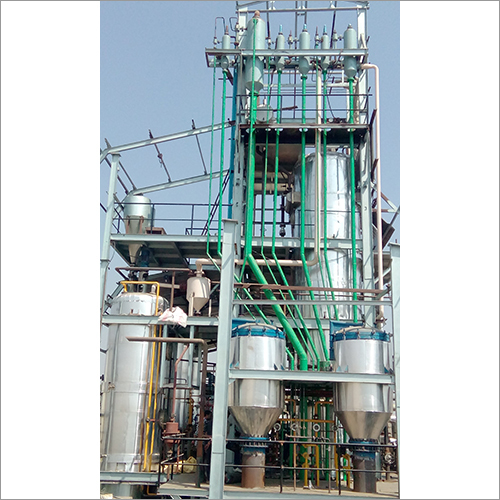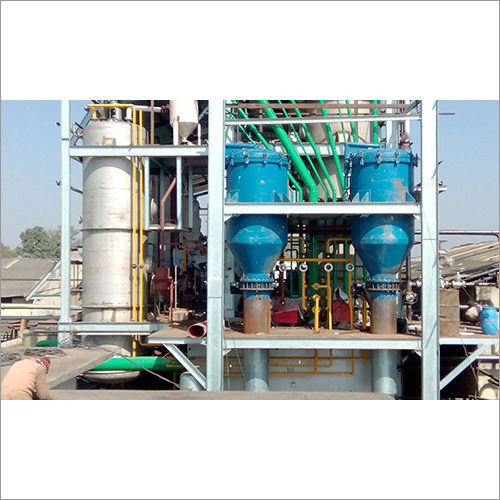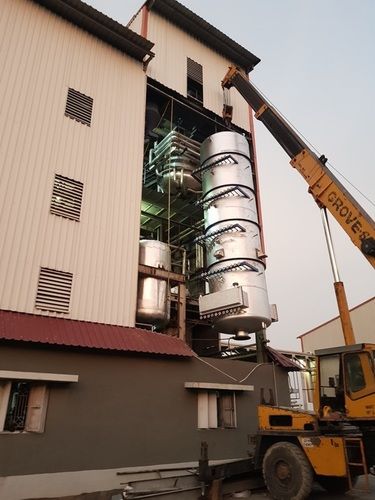- Home Page
- Company Profile
-
Technologies
- Oilseed Preparatory Plants
- Oilseed Extraction Plants
- Crude Oil Filtration Plants
- Edible Oil Refining Plant
- Soya Lecithin Plants
- Conveying Systems
- Plant Heat Exchanger
- Solvent Extraction Plant
- Expander Machine
- Seed Cleaning Machinery
- Distillation Plant
- Bucket Elevators
- Fractionation Plant
- Dewaxing Plant
- Downloads
- Contact Us
Continous Refining Plant
5000000.00 INR/Set
Product Details:
- Type Automatic
- Material Stainless Steel
- Production Capacity 25-500 Ton/day
- Computerized Yes
- Automatic Grade Automatic
- Control System PLC Control
- Voltage 380-440 Volt (v)
- Click to View more
X
Continous Refining Plant Price And Quantity
- 20000000.00 - 50000000.00 INR/Set
- 5000000.00 INR/Set
- 1 Set
Continous Refining Plant Product Specifications
- 380-440 Volt (v)
- 25-500 Ton/day
- PLC Control
- Yes
- 1 Year
- Automatic
- Stainless Steel
- Automatic
Continous Refining Plant Trade Information
- Mumbai
- Cash on Delivery (COD) Letter of Credit (L/C) Letter of Credit at Sight (Sight L/C) Cash Against Delivery (CAD) Telegraphic Transfer (T/T) Cash Advance (CA)
- 5 Set Per Year
- 1 Months
- All India
- ISO-9001:2015
Product Description
<div style="text-align: justify;"><font size="4" face="georgia, times new roman, times, serif">A continuous refining plant is a specialized facility used for the continuous refining of various substances, such as edible oils, chemicals, or petroleum products. It operates in a continuous flow mode, allowing for a consistent and uninterrupted refining process. Continuous refining plants are designed for large-scale production and offer high efficiency, automation, and precise control over refining parameters, resulting in improved productivity and product quality.</font></div><div style="text-align: justify;"><font size="4" face="georgia, times new roman, times, serif"><br /></font></div><div style="text-align: justify;"><strong><font size="4" face="georgia, times new roman, times, serif">FAQs: </font></strong></div><div style="text-align: justify;"><font size="4" face="georgia, times new roman, times, serif"><br /></font></div><div style="text-align: justify;"><strong><font size="4" face="georgia, times new roman, times, serif">Q: What is a continuous refining plant?</font></strong></div><div style="text-align: justify;"><font size="4" face="georgia, times new roman, times, serif"><strong>A: </strong> A continuous refining plant is a facility designed for the continuous and uninterrupted refining of substances, such as edible oils, chemicals, or petroleum products. It operates in a continuous flow mode, allowing for a consistent refining process without interruption. Continuous refining plants are typically used for large-scale production and offer high efficiency, automation, and precise control over refining parameters.</font></div><div style="text-align: justify;"><font size="4" face="georgia, times new roman, times, serif"><br /></font></div><div style="text-align: justify;"><strong><font size="4" face="georgia, times new roman, times, serif">Q: Why is a continuous refining plant used?</font></strong></div><div style="text-align: justify;"><font size="4" face="georgia, times new roman, times, serif"><strong>A: </strong> A continuous refining plant is used to refine raw materials continuously, ensuring a consistent and efficient refining process. It is employed in industries that require large-scale production volumes and a continuous supply of high-quality refined products. Continuous refining plants offer advantages such as increased productivity, improved process control, and reduced labor and downtime.</font></div><div style="text-align: justify;"><font size="4" face="georgia, times new roman, times, serif"><br /></font></div><div style="text-align: justify;"><strong><font size="4" face="georgia, times new roman, times, serif">Q: How does a continuous refining plant work?</font></strong></div><div style="text-align: justify;"><font size="4" face="georgia, times new roman, times, serif"><strong>A: </strong> A continuous refining plant operates by continuously feeding the raw material into the refining process and extracting the refined product at a steady rate. The plant consists of various interconnected units, such as heating, mixing, separation, and purification equipment. The raw material undergoes a series of refining steps, which may include degumming, neutralization, bleaching, deodorization, or other specific processes depending on the desired end product. The refined product is continuously discharged while maintaining a consistent flow of raw material into the plant.</font></div><div style="text-align: justify;"><font size="4" face="georgia, times new roman, times, serif"><br /></font></div><div style="text-align: justify;"><strong><font size="4" face="georgia, times new roman, times, serif">Q: What substances can be refined in a continuous refining plant?</font></strong></div><div style="text-align: justify;"><font size="4" face="georgia, times new roman, times, serif"><strong>A: </strong> Continuous refining plants can be used to refine a wide range of substances, depending on their design and the specific refining processes employed. They are commonly utilized for refining edible oils (such as soybean oil, palm oil, or sunflower oil) and petroleum products. Continuous refining plants can also be adapted for refining chemicals, industrial oils, biodiesel, or other substances that require large-scale and continuous refining processes.</font></div><div style="text-align: justify;"><font size="4" face="georgia, times new roman, times, serif"><br /></font></div><div style="text-align: justify;"><strong><font size="4" face="georgia, times new roman, times, serif">Q: What are the benefits of a continuous refining plant?</font></strong></div><div style="text-align: justify;"><font size="4" face="georgia, times new roman, times, serif"><strong>A: </strong>Continuous refining plants offer several benefits. They enable large-scale production with a continuous supply of refined products, ensuring consistent quality and meeting high production demands. Continuous operation improves efficiency and productivity, reducing downtime and labor requirements compared to batch processes. Continuous refining plants also provide precise control over refining parameters, allowing for optimal process optimization and improved product quality.</font></div>
FAQs of Continous Refining Plant:
Q: What is the material used for the Continuous Refining Plant?
A: The Continuous Refining Plant is made of high-grade stainless steel.Q: Is the plant computerized?
A: Yes, the plant is equipped with a computerized PLC control system.Q: What is the warranty on the plant?
A: The plant is backed by a 1-year warranty.Q: What is the production capacity of the plant?
A: The plant has a production capacity of 25-500 ton/day.Q: What is the voltage requirement for the plant?
A: The voltage requirement for this plant is 380-440 Volt (v).Tell us about your requirement

Price:
Quantity
Select Unit
- 50
- 100
- 200
- 250
- 500
- 1000+
Additional detail
Mobile number
Email
Other Products in 'Edible Oil Refining Plant' category
"We are looking for Export Inquiries"

 English
English Spanish
Spanish French
French German
German Italian
Italian Chinese (Simplified)
Chinese (Simplified) Japanese
Japanese Korean
Korean Arabic
Arabic Portuguese
Portuguese







